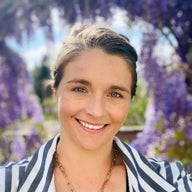Over the past several years, the unequal distribution of internet performance and access across socioeconomic and geographic lines — commonly referred to as the digital divide — has become increasingly stark. And the COVID-19 pandemic threw this global access disparity into sharper focus: in April 2020, we found that the lowest-income neighborhoods in the United States had download speeds that were 41.4% lower than neighborhoods with the highest income brackets, and that ISPs and mobile providers have the power to provide greater capacity and remove bandwidth restrictions and have done so amid the global health crisis.
In the year since, many stop-gap solutions have been put in place to bridge the gap between students with internet connectivity and those without. However, many of those solutions will expire in the next one to three years. We wanted to take a look at ways edtech organizations and other companies can help bridge the digital divide today — and permanently. We sat down with Rob McQueen, the CEO of the Endless OS Foundation, a member of our Open Source & Nonprofit Program, to learn how they’re serving students in every part of the world.
Demand for online educational content surged with the COVID-19
The Endless OS Foundation is a 501c4 social welfare nonprofit whose mission is to help all people and communities connect with technology. Their work to bridge the digital divide focuses on increasing access to affordable devices and building software that helps ease the burden of need for high-speed connectivity. They partner with organizations like Khan Academy, Common Sense, TED-Ed, and PBS to source educational content for their operating system, including video lessons, applications, and 50,000+ Wikipedia articles. They also partner with organizations like World Possible, International Rescue Council, Teach for America, and Save the Children to deploy their OS all over the world, from the Appalachian Mountains to Kenya.
“An internet-connected personal computer is a prerequisite for participating in the digital economy, but today’s reality is that nearly half of the world’s population is not connected to the internet’s wealth of knowledge and opportunity.” - Rob McQueen, CEO
Over eight years of work in this space, Endless has confronted firsthand the realities of the digital divide, from families sitting in business parking lots to use the internet, to computers sitting unused due to a lack of viable internet connectivity — issues that only grew worse when the global pandemic began. The pandemic caused traffic to surge for The Endless OS Foundation.
As a still relatively young nonprofit, Endless OS Foundation operates on a limited budget. As soon as schools started to close, they saw an increase in downloads and updates that came with a spike in egress costs. When Endless reached out to their then content delivery network (CDN) to see if anything could be done, they encountered inefficient solutions. They were also suffering from CDN dead zones in regions, like Southeast Asia, Central, and South America, where they have a significant amount of users. The quality of their service was intermittent, and costs kept creeping up.
A modern CDN for a modern educational approach
Endless knew it was time for a new solution and we were thrilled to have them join our nonprofit program, putting the power of a modern CDN behind their delivery. Their most data-intensive tasks are the full downloads of Endless OS, which are often performed in areas with poor connectivity. With segmented caching for their large files, they can increase performance of their largest resources by breaking them into smaller segments in cache, then recombining them.
By choosing a long time-to-live (TTL), which is the amount of time information can be retained or cached in a CDN before a fresh copy is fetched from the origin, and by selecting and marking content as outdated for a soft purge, rather than completely purging it from the cache, Endless is able to save on the egress costs. That makes a big impact on their nonprofit budget.
“Fastly is by far the best CDN we’ve ever used in terms of being able to get in there and see what’s going on in real time, and literally being able to edit the configuration file. We've got some really large files, so segmented caching has been instrumental in making the service work effectively for us. We’re extremely impressed with what Fastly has done for us in terms of the speed and reliability of people getting Endless OS.” - Rob McQueen, CEO
What’s next
With our modern CDN powering them, Endless OS Foundation is able to turn their eyes to the future — toward faster download speeds, hybrid online/offline resources, and Endless Key, a USB device preloaded with robust internet content for offline use. As they bring more content partners online, they’ll be able to expand their content library, giving their users even greater access to tools they need to learn, work, and grow.
